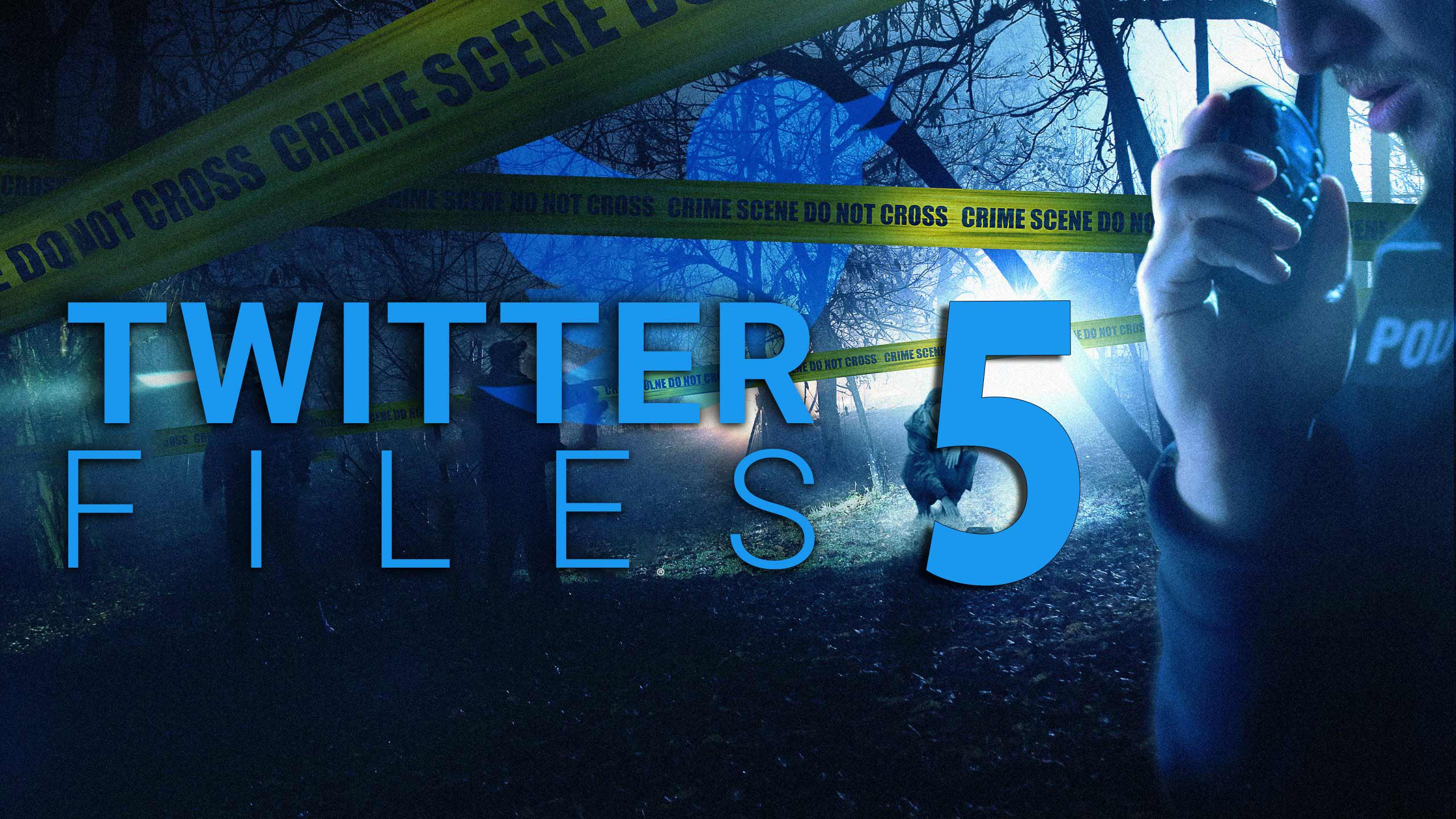The Twitter Files Part 5 reveals
Staffers Who Didn’t Believe Trump Violated ‘Incitement’ Policy
Bari Weiss releases latest batch of information around Trump’s permanent suspension
The Removal Of Donald Trump – Part 3 • Bari Weiss • (@bariweiss)
Fox News’ Mike Emanuel and Fox News contributor Jonathan Turley on the latest release of the ‘Twitter Files,’ media’s failure to cover the discoveries
The fifth installment of Elon Musk’s “Twitter Files” Monday revealed that staffers believed that tweets written by former President Trump around the events of Jan. 6 had not actually violated its policies despite the company saying so at the time.
“For years, Twitter had resisted calls both internal and external to ban Trump on the grounds that blocking a world leader from the platform or removing their controversial tweets would hide important information that people should be able to see and debate,” Bari Weiss of The Free Press wrote towards the beginning of her thread on Monday. “But after January 6, as @mtaibbi and @shellenbergermd have documented, pressure grew, both inside and outside of Twitter, to ban Trump.”
Weiss cited “dissenters” within Twitter that did not want to ban Trump, including one who wrote, “Maybe because I am from China. I deeply understand how censorship can destroy the public conversation.”
“But voices like that one appear to have been a distinct minority within the company. Across Slack channels, many Twitter employees were upset that Trump hadn’t been banned earlier,” Weiss wrote. “After January 6, Twitter employees organized to demand their employer ban Trump. ‘There is a lot of employee advocacy happening,’ said one Twitter employee.”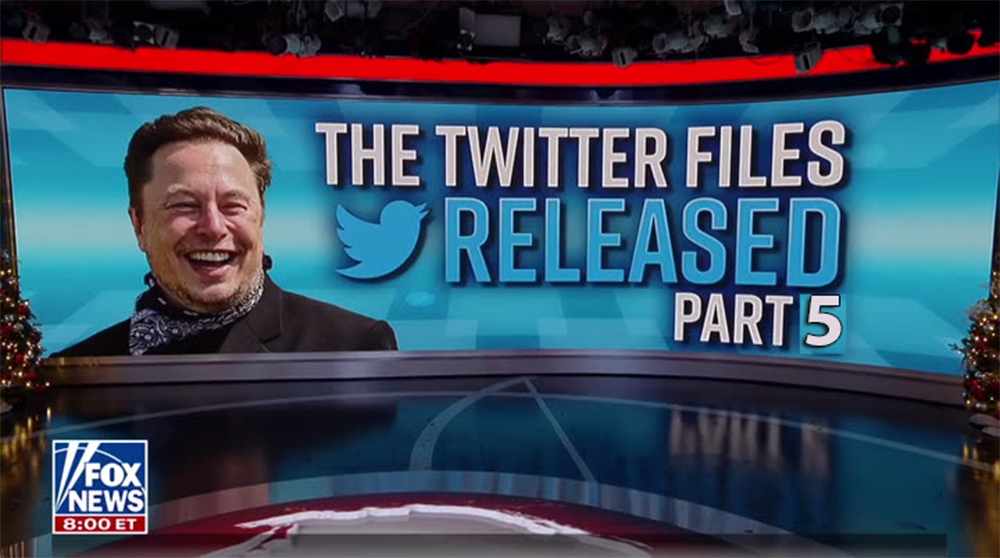
After citing the public outcry of “over 300 Twitter employees” who signed an open letter published in the Washington Post pressuring then-Twitter CEO Jack Dorsey to ban Trump, Weiss revealed “Twitter staff assigned to evaluate tweets quickly concluded that Trump had *not* violated Twitter’s policies.”
“I think we’d have a hard time saying this is incitement,” a staffer said, according to Weiss. “It’s pretty clear he’s saying the ‘American Patriots’ are the ones who voted for him and not the terrorists (we can call them that, right?) from Wednesday.”
“Don’t see the incitement angle here,” another staffer agreed, per Weiss.
Anika Navaroli, a Twitter policy official, similarly wrote “I also am not seeing clear or coded incitement in the DJT tweet. I’ll respond in the elections channel and say that our team has assessed and found no viols [violations] for the DJT one.”
Navaroli later added, “as an fyi, Safety has assessed the DJT Tweet above and determined that there is no violation of our policies at this time.”
“Later, Navaroli would testify to the House Jan. 6 committee:’For months I had been begging and anticipating and attempting to raise the reality that if nothing—if we made no intervention into what I saw occuring, people were going to die,'” Weiss tweeted.
Regarding Trump’s last tweet announcing he was not attending President Biden’s inauguration, Twitter’s safety team concluded at the time, “it’s a clear no vio. It’s just to say he’s not attending the inauguration.”
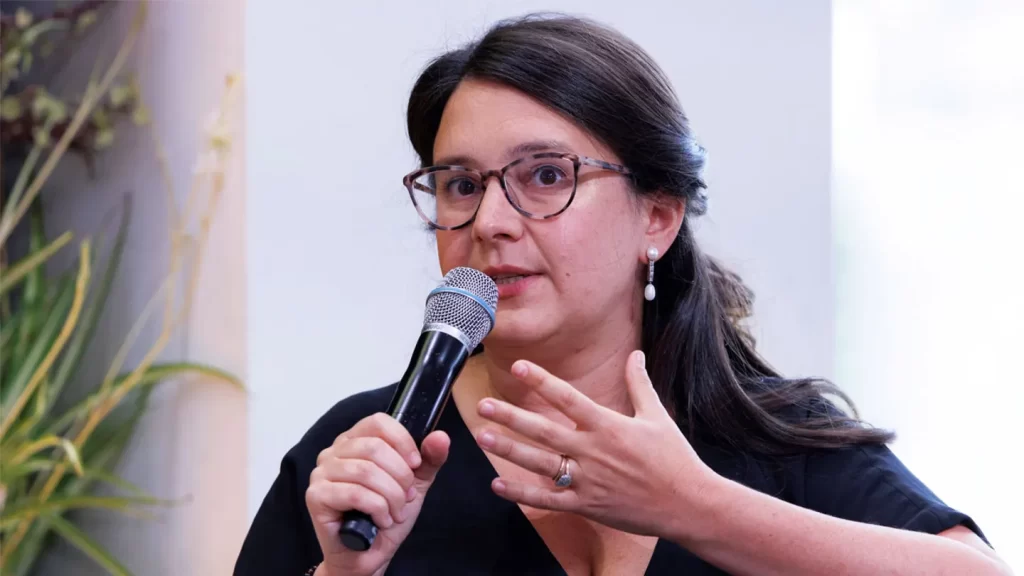
Bari Weiss, editor of The Free Press and host of “Honestly” podcast speaks at the 2022 Milken Institute Global Conference in Beverly Hills, California, U.S., May 3, 2022. (REUTERS/Mike Blake)
To provide context about the historic nature of Trump’s ban from Twitter, Weiss revisited tweets from controversial world leaders that were allowed to remain on the platform like Iran’s Ayatollah Ali Khamenei, who in 2018 wrote “#Israel is a malignant cancerous tumor in the West Asian region that has to be removed and eradicated: it is possible and it will happen.” He faced zero consequences.
Twitter deleted a 2020 tweet from Malaysian Prime Minister Mahathir Mohamad who said it was “a right” for Muslims to “kill millions of French people,” saying the tweet “glorifies violence” but the leader remained on the platform. Twitter gave similar treatment to Nigeria President Muhammadu Buhari.
“Less than 90 minutes after Twitter employees had determined that Trump’s tweets were not in violation of Twitter policy, Vijaya Gadde—Twitter’s Head of Legal, Policy, and Trust—asked whether it could, in fact, be ‘coded incitement to further violence,’” Weiss reported. “A few minutes later, Twitter employees on the ‘scaled enforcement team’ suggest that Trump’s tweet may have violated Twitter’s Glorification of Violence policy—if you interpreted the phrase ‘American Patriots’ to refer to the rioters.”
“Things escalate from there,” Weiss continued. “Members of that team came to ‘view him as the leader of a terrorist group responsible for violence/deaths comparable to Christchurch shooter or Hitler and on that basis and on the totality of his Tweets, he should be de-platformed.’
Weiss then highlighted the 30-minute all-staff meeting led by Dorsey and Gadde, who were confronted by staffers about why Trump had not been banned.
Yoel Roth, Twitter’s then-head of Trust and Safety, wrote to a colleague, “Multiple tweeps [Twitter employees] have quoted the Banality of Evil suggesting that people implementing our policies are like Nazis following orders.”
After Dorsey had requested simpler language to explain why Trump would be banned, Roth reacted to staffers “god help us [this] makes me think he wants to share it publicly.”
“One hour later, Twitter announces Trump’s permanent suspension ‘due to the risk of further incitement of violence. Many at Twitter were ecstatic,” Weiss wrote, sharing communications from staffers celebrating the Trump ban.
The Trump ban appeared to immediately inspire a crackdown on “medical misinformation,” with Weiss reporting that the next day a renewed push by the tech giant according to internal communications. She quoted one staffer who said “For the longest time, Twitter’s stance was that we aren’t the arbiter of truth which I respected but never gave me a warm fuzzy feeling.”
“But Twitter’s COO Parag Agrawal—who would later succeed Dorsey as CEO—told Head of Security Mudge Zatko: ‘I think a few of us should brainstorm the ripple effects’ of Trump’s ban. Agrawal added: ‘centralized content moderation IMO has reached a breaking point now,” Weiss reported.
Weiss concluded her thread, “Ultimately, the concerns about Twitter’s efforts to censor news about Hunter Biden’s laptop, blacklist disfavored views, and ban a president aren’t about the past choices of executives in a social media company. They’re about the power of a handful of people at a private company to influence the public discourse and democracy.”
The Twitter Files began on Dec. 2 with Taibbi revealing internal efforts to suppress the New York Post’s Hunter Biden story in 2020.
Weiss reported the second installment of the Twitter Files Thursday which revealed the company “blacklisting” or shadowbanning certain tweets and users.
ELON MUSK’S SECOND INSTALLMENT OF ‘TWITTER FILES’ REVEALS ‘SECRET BLACKLISTS,’ BARI WEISS REPORTS
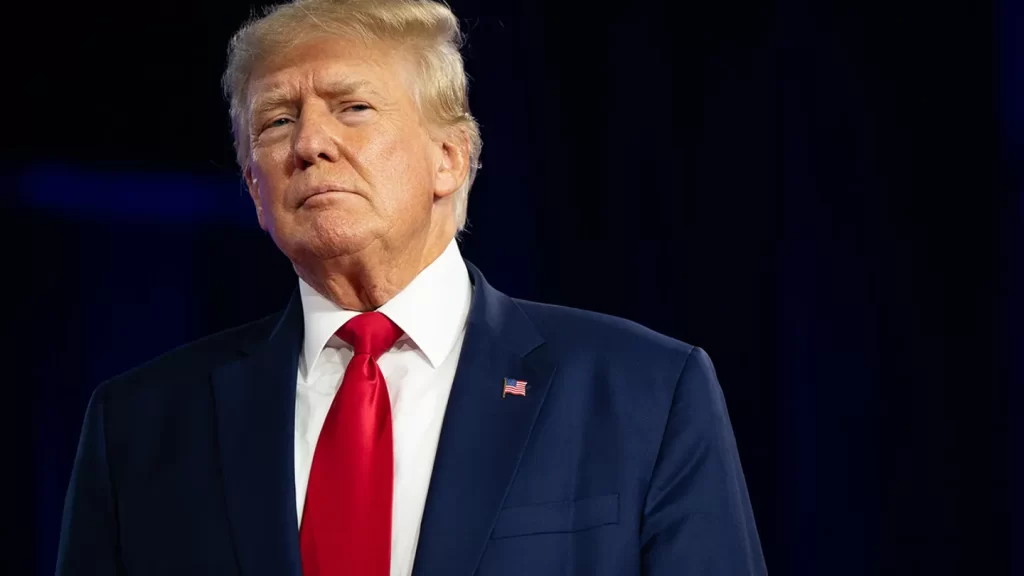
Former U.S. President Donald Trump was banned from Twitter on Jan. 8, 2021, after several discussions from social media employees, internal files revealed. (Brandon Bell/Getty Images)
Parts three and four were dedicated to outlining what led to Trump being removed from Twitter on Jan. 8, 2021. Musk reinstated Trump’s Twitter account in November.
In Friday’s Twitter Files Part 3, which covers the dates of October 2020-January 6, 2021, Taibbi went over “the erosion of standards within the company in months before J6, decisions by high-ranking executives to violate their own policies, and more, against the backdrop of ongoing, documented interaction with federal agencies.”
“Whatever your opinion on the decision to remove Trump that day, the internal communications at Twitter between January 6th-January 8th have clear historical import. Even Twitter’s employees understood in the moment it was a landmark moment in the annals of speech,” Taibbi wrote.
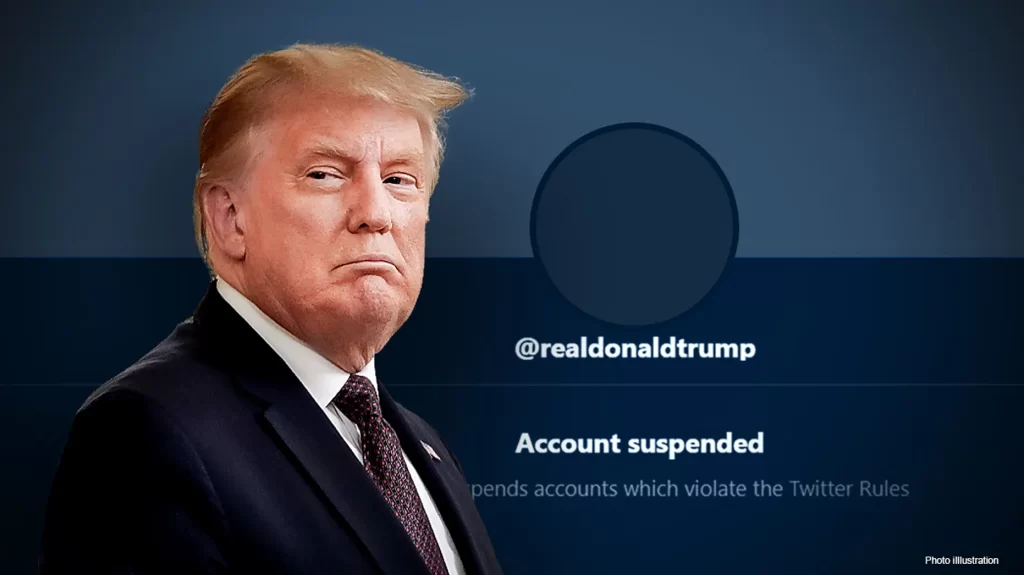
Donald Trump’s Twitter account was permanently suspended on Jan. 8, 2021. (Getty Images)
On Saturday, Shellenberger elaborated in Part 4 on Twitter’s efforts in the day following the Jan. 6 Capitol riot to “build a case” to ban Trump from Twitter permanently, including seeking “a change of policy for Trump alone, distinct from other political leaders.”
This followed several public calls from prominent figures such as First Lady Michelle Obama to ban Trump on Jan. 7, 2021.
TWITTER FILES REVEAL TRUMP BAN CAME AFTER MICHELLE OBAMA, OTHERS PRESSURED THE COMPANY
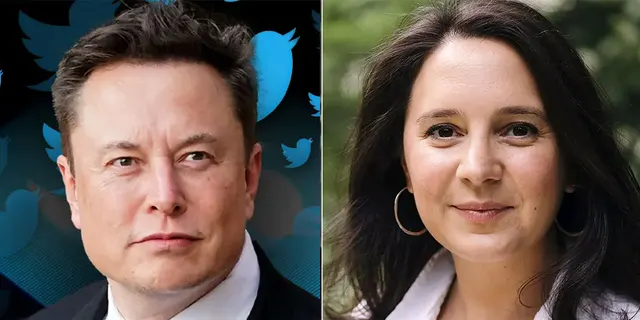
Earlier on Sunday, Musk implied that a future installment of the Twitter Files would involve efforts to those who criticized COVID-19 policies.
One Twitter user asked, “When will we get the twitter files on covid? The info on the suspension of the many doctors and scientists? Who was involved? Suppression of what has turned out to be factual information.”
“Oh it is coming bigtime …” Musk replied.
Musk had been vocal about being transparent when it comes to Twitter’s past and present actions when it comes to curating content on the platform, including censored content.
Twitter infamously blocked its users from sharing the New York Post’s reporting of Hunter Biden’s laptop in tweets and in direct messages.
CLICK HERE TO GET THE FOX NEWS APP
At the time, Twitter Safety alleged that the articles were in violation of its “hacked materials policy.” Twitter’s then-CEO Jack Dorsey admitted his companies actions were a mistake.
Some critics believe the suppression of the Hunter Biden scandal by Big Tech and the media at large was enough to sway the election in favor of his father.

